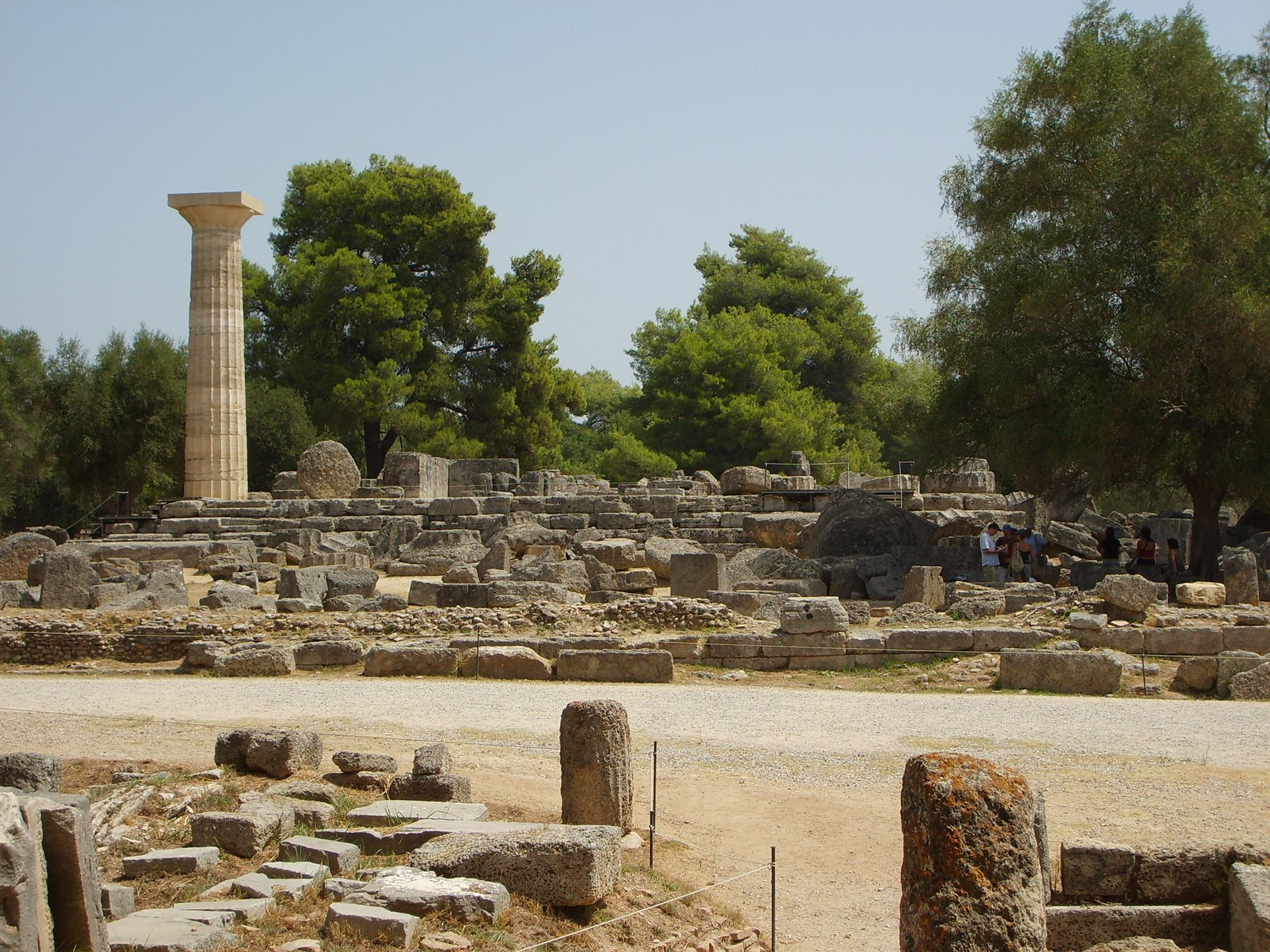In western Peloponnese, in the beautiful valley of the Alpheios river, lies the most celebrated sanctuary of ancient Greece. Dedicated to Zeus, the father of the gods, Olympia became the most important religious and athletic centre in Greece. Its fame rests upon the Olympic Games, the greatest national festival and a highly prestigious one world-wide, which was held from the 8th century BC to the 4th century AD every four years to honour Zeus.
The archaeological site held over 70 significant buildings, and ruins of many of these survive. The stadium has been resurrected for Olympic use with no intentional alteration of the ancient topography. The games were resurrected in 1894 based on the ancient model, but more international than ever. The ideology of the new games turned to the site of ancient Olympia for its inspiration, where even the ruins assumed a symbolic significance.
The Olympic flame of the modern-day Olympic Games is lit by reflection of sunlight in a parabolic mirror in front of the Temple of Hera and then transported by a torch to the place where the Games are held.

